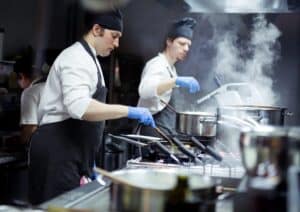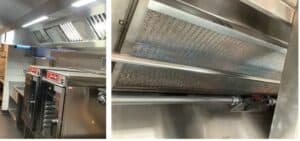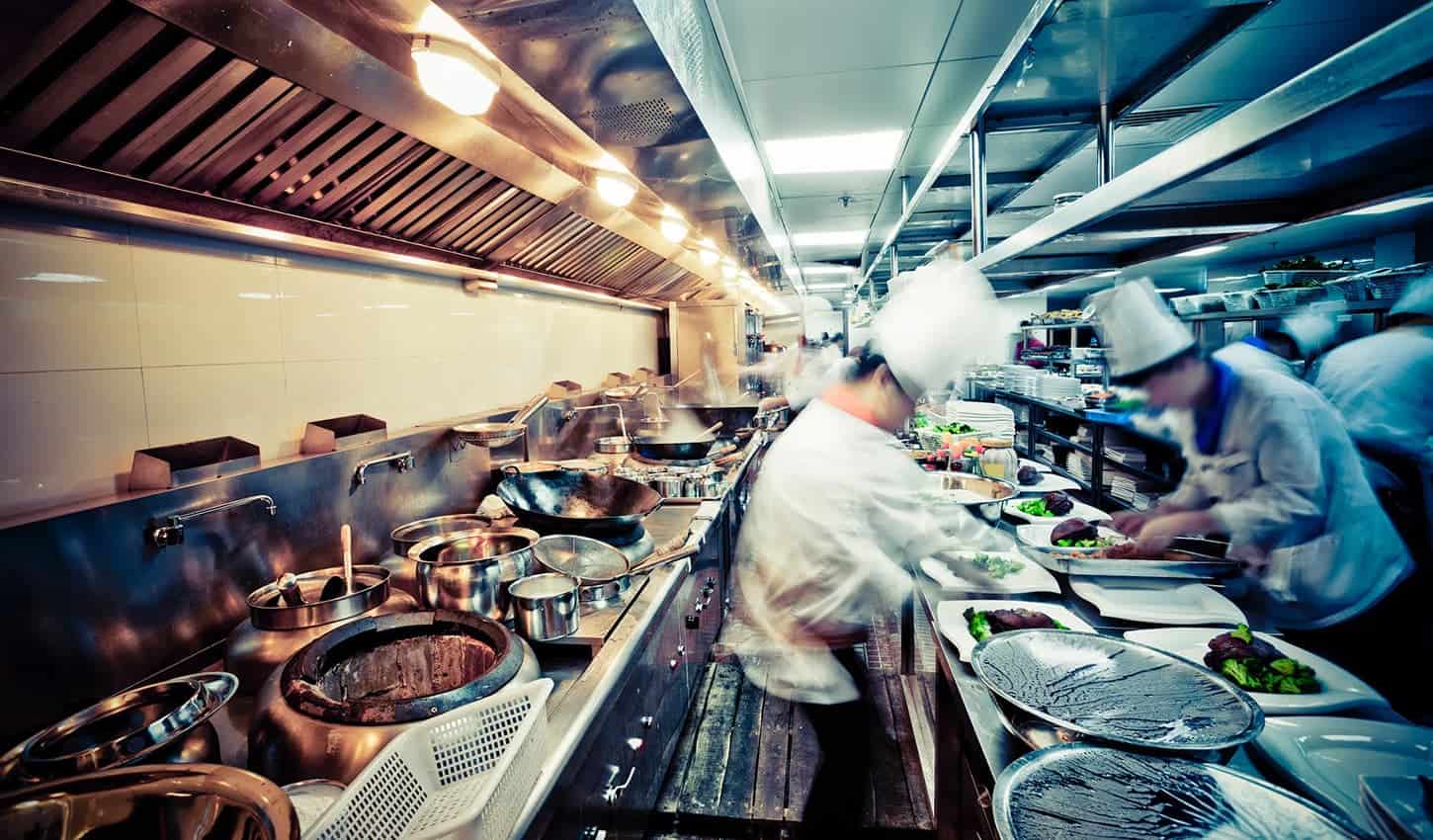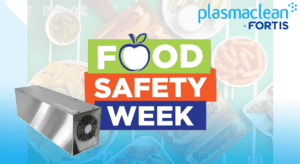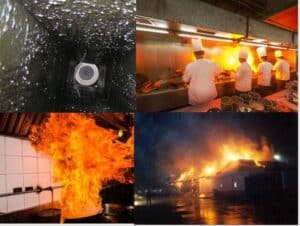The levels of grease and odour depends on the type of cooking in your restaurant / take-away establishment. Based on DEFRA (Department for Environment, Food & Rural Affairs) 2005 guidelines, we have outlined grease and odour levels in a variety of commercial kitchens.
What can you smell?
Different commercial kitchens generate different smells. For example, a pizza restaurant usually generates medium levels of odour; but most pubs generate high levels of grease and odour.
A Chinese take-away will usually have very high levels of grease and high levels of odour; whereas a kitchen cooking soup will have very low grease but could have strong odours. Another example is a fish and chip shop will be very greasy and also generate a very strong smell.

So, how do you know if the smell from your kitchen is actually a grease problem?
What are the levels of grease and odour in your establishment?
Kitchen grease is a real hazard.
Those who work with food businesses including Mechanical & Electrical Consultants & Engineers, Ventilation & Canopy Specialists, Planning & Environmental Health Officers, Facilities Managers & Landlords, know how hard it can be to control grease build-up in the kitchen ventilation ductwork. It is also a fire hazard. The levels of grease in the system can be measured in microns. Do you know your current level?
Kitchen odours can be a real nuisance. Especially for your neighbours.
A proper odour control kitchen ventilation solution will help prevent odours from the kitchen from festering and affecting the working environment, or from travelling to the other parts of the premises, such as the dining area.
Anything can produce a cooking smell; the number of covers a restaurant does, and where the system discharges are factors that can affect how strongly these odours are smelt outside of the kitchen.
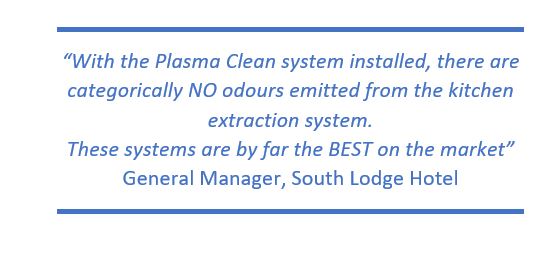
Solution choices
There are many things to take into account when choosing your solution. For example, we will take under consideration:
- Specification requirements
- TR19 inspection and cleaning tests
- Space restraints
- Planning consents
- Level of extraction
and even the environment the kitchen is working in.
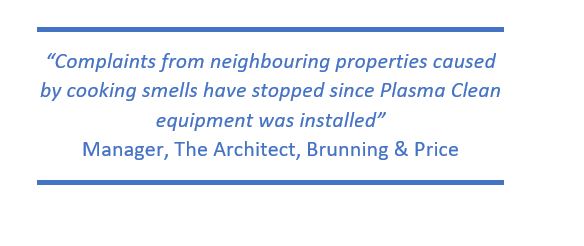
Our solution plan begins with identifying the problem, treating it and maintaining the solution. To continue to reap the benefits, it is important to maintain the equipment and keep the duct clean with a regular TR19 cleaning.
Careful selection of components and a planned service regime are key. The mentality of ‘fit and forget’ is not an option.
You need an expert
We specialise in solutions using cutting edge plasma and UV-C technologies to control odour and grease in commercial kitchens.
We have a unique mix of experience and academic rigour to problem solving across the UK and beyond.
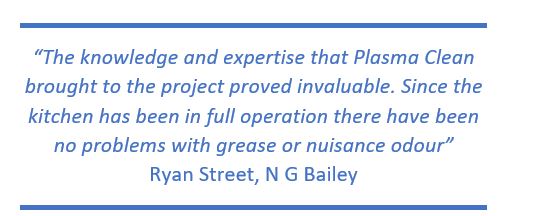

You are welcome to contact Plasma Clean today about how our solutions can control grease and odour in your commercial kitchen:
Call 0161 870 2325, Email [email protected]
For further information visit www.plasma-clean.com
